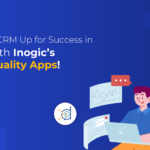With its extensive set of capabilities, Khoros is a powerful platform that has great potential in the world of online communities. On the other hand, Salesforce is a well-known CRM system that offers efficient customer support.
Still, it might not be the best approach to have your Salesforce CRM and Khoros community operating in distinct divisions. Customer support interactions may become longer and more difficult as a result.
However, is there a solution to these challenges, you ask?
Let’s explore how this integration allows community managers to deliver proactive support as well as encourage unparalleled engagement within their communities.
Understanding Khoros-Salesforce Integration: Exploring the Basics
Let’s first understand the definition of the Khoros-Salesforce integration before moving on to the use cases. Khoros, being ‘THE’ community platform provides an array of features that can improve member participation and engagement. In the same way, Salesforce Service Cloud provides cutting-edge functionality to help you provide proactive customer assistance. However, community managers must answer consumers’ problems and develop a closer relationship with them. As a result, Khoros Community and Salesforce CRM integration becomes essential. It offers a vital answer that pushes community managers’ performance to unprecedented levels.
By merging the powerful characteristics of Khoros community with the advanced capabilities of Salesforce CRM, community managers can mitigate the limitations of working in silos and discover a range of benefits.
6 Use Cases of Khoros-Salesforce Integration: Deciphering the ‘Why’ of It
Community managers can reap immense benefits with Khoros-Salesforce integration for managing community operations, effectively. Here are the top 6 use cases of Khoros-Salesforce integration for community managers-
1. Streamlined Community Management
The integration of Khoros with Salesforce offers businesses a centralized approach to community management. By consolidating community members’ activities within Salesforce, organizations can gain a comprehensive perspective on customer interactions, support tickets, and overall engagement within the community. This cohesive strategy facilitates the delivery of consistent and personalized experiences, simplifying the tracking of customer journeys and enabling tailored communication.
Don’t forget to check out: Salesforce FreePBX Integration | All You Need to Know
2. Efficient Workflow Automation
The integration of Khoros with Salesforce brings about the automation of various community-related workflows for businesses. This encompasses tasks like member onboarding, community moderation, and engagement activities. This not only reduces manual efforts but also ensures swift response times, enhancing overall operational efficiency. Consequently, community managers can redirect their focus towards building meaningful connections with members instead of getting bogged down by time-consuming tasks.
3. Harnessing Community Insights
Data holds immense value for any organization, with community data being particularly insightful as it encapsulates customers’ interests, feedback, and opinions. Through Khoros-Salesforce integration, organizations can tap into the robust analytics capabilities of Salesforce. By merging community data with customer activity, support agents can optimize support productivity. These analytics empower managers to make informed, data-driven decisions, identify trends, and enhance their community strategy.
4. Personalized Customer Engagement
With Khoros-Salesforce integration, community managers unlock access to valuable customer data in Salesforce, enabling them to craft a personalized customer experience. By delving into customer behavior and preferences, managers can tailor content recommendations, send personalized notifications, and segment communication. This integration also streamlines personalized customer support within the community, addressing specific inquiries and tickets.
Moreover, community managers can deploy gamification techniques aligned with Salesforce data, creating personalized challenges and rewards. In essence, the integration empowers community managers to curate tailored experiences that deepen connections and elevate customer engagement.
5. Data-Driven Decision-Making
The Khoros-Salesforce integration equips community managers with efficient access to and utilization of community analytics. Leveraging Salesforce’s robust analytics capabilities, managers can visualize data and formulate data-driven community management strategies. Furthermore, the integration enables managers to gauge the impact of community initiatives and optimize them. This integration serves as a cornerstone for community managers to make continuous improvements in the overall community experience.
6. Collaboration and Knowledge Sharing
Self-service isn’t just a customer preference; it’s a pathway for organizations to achieve efficiency through higher case deflection. However, realizing a commendable case deflection rate necessitates an accessible and robust resource library. While building such a library is crucial, making it accessible across multiple platforms poses a challenge. Enter Khoros-Salesforce integration, empowering community managers to collaborate more effectively with internal teams, including support, marketing, and product teams.
![]() Check out another amazing blog by Amisha here: Top 4 Reasons Why Community-Salesforce Integration is Instrumental to Your Business
Check out another amazing blog by Amisha here: Top 4 Reasons Why Community-Salesforce Integration is Instrumental to Your Business
For example, utilizing Salesforce, community managers can seamlessly share knowledge, discuss community issues, and coordinate efforts with other teams. Furthermore, Salesforce becomes a gateway for community managers to access third-party apps and tools, such as social listening platforms or sentiment analysis tools, amplifying their community management capabilities.
Successful community management transcends mere connection-building; it’s about leveraging integrated systems to deliver exceptional experiences and drive business success. The Khoros-Salesforce integration stands as a revolutionary force in community management, uniting the strengths of two formidable platforms.




![Best Practices for Maintaining Government Site Reliability// Woman looking at computer center. [Image: Adobe]](https://www.cybercloudintel.com/wp-content/uploads/2024/12/Best-Practices-for-Maintaining-Government-Site-Reliability-150x150.png)


